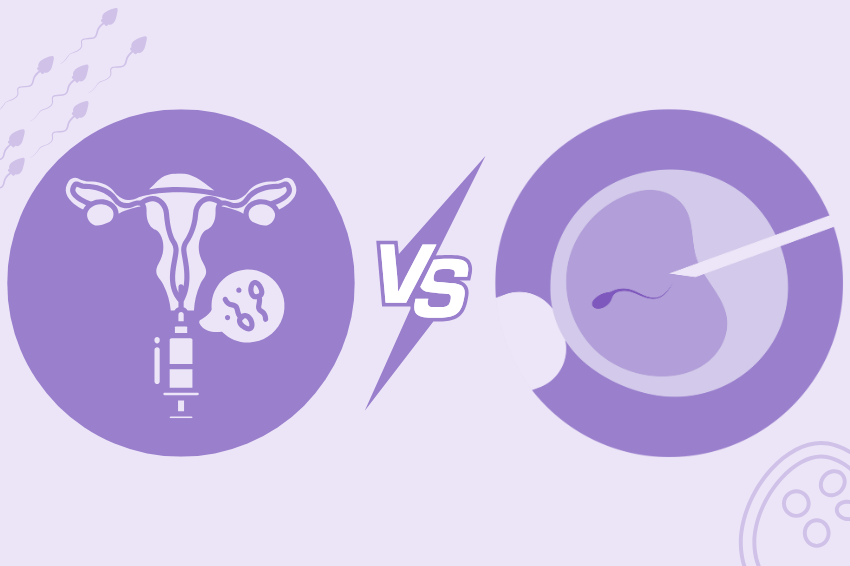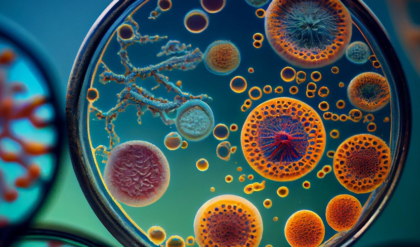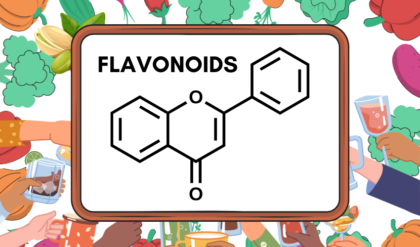IUI vs IVF: Understanding the Differences
Technology advancements have made treating infertility within people of reproductive age possible due to their increased prevalence. The two most popular forms among assisted reproductive technologies (ART) encompass both Intrauterine insemination (IUI) and In vitro fertilization (IVF).

These techniques give hope to childless couples about their future child while presenting distinct features between them like procedures and success rates and monetary aspects and suitability options for different pairs.
This article will explain the differences between IUI vs IVF and each procedure in more depth, to help you decide which method of fertility treatment is more suitable for you.
What is IUI?
The procedure of IUI places sperm directly inside the uterus during an egg release period as a type of artificial insemination technique. The purpose behind this treatment exists to boost sperm delivery to the fallopian tubes which results in better chances of conception. Doctors selected IUI as their top fertility treatment because it presents low cost and minimal invasiveness with easy applicability compared to alternative therapeutic modalities.
Who is a Good Candidate for IUI?
- Unexplained infertility: Couples who have been unable to conceive after one year of unprotected intercourse without an obvious reason for infertility should opt for IUI.
- Male Factor Infertility: Men with low sperm count and that convey poor motility stand to benefit from IUI especially if assisted by sperm washing procedures.
- Cervical Factor Infertility: Any woman who has a problem of having mucus that hampers the movement of sperms, may opt to go for IUI since it does not involve passage through the cervix.
- Donor Sperm Use: Many couples or single women wanting sperm donors engage themselves in IUI as compared to other expensive procedures.
- Mild Ovulatory Problems: Women with minor ovulation problems like PCOS, or women whose menstrual cycle is either irregular may opt to consume fertility drugs along with IUI.
The IUI Process
IUI treatment is not complex and can be done in a doctor’s office and the whole process may last for about ten minutes. The steps typically include:
- Sperm Acquisition: Sperm may be provided by a male partner or by a sperm donor. It is then centrifuged in the laboratory in order to increase the concentration of good sperms.
- Ovulation Induction: The woman may have to take certain medications this is if she is required to be put on a fertility drug to trigger ovulation. Ovulation is then preferably confirmed through an ultrasound or blood examination.
- Insemination: Sperm preparation is accomplished on the day of ovulation and then it is deposited through the cervix by a thin tube.
Pros of IUI
- Minimally Invasive: IUI is a low-profile method that is not complicated and can be conducted at a doctor’s office without much discomfort.
- Affordable: In most cases, IUI is cheaper than IVF, as a result it can be considered as a more suitable solution for childless couples.
- Faster Healing: Compared to invasive interventions, IUI does not take long to heal implying that the couple can go back to their normal activities shortly.
- Shorter Duration: The whole process of IUI can be accomplished in a shorter time than that of IVF.
Cons of IUI
- Lower Success Rates: IUI has also been known to produce very low success rates than IVF especially to couples who have certain kinds of infertility conditions.
- Require Multiple Cycles: Various couples undergo multiple cycles when going through IUI with the aim of getting pregnant.
- Applicable for Certain Cases: Although IUI has its benefits, it should not be attempted for complete blockage in the fallopian tubes or severe male infertility problem.
What is IVF?
In vitro fertilization (IVF) ranks as a higher level of fertility treatment than the rest of the fertility treatment options. Following egg extraction from the ovaries and sperm collection from the partner the laboratory conducts the eggs’ fertilization. Following fertilization the health care provider will call the egg an embryo before placing it into the uterus for development. A medical procedure involves its use after unsuccessful treatment attempts when the fertility indications are extremely low.
Who is a Good Candidate for IVF?
- Fallopian Tube Diseases: Women with fallopian tube diseases who need IVF treatment become qualified candidates because this procedure does not require the use of tubes.
- Endometriosis: During severe endometriosis cases IVF functions as a suitable treatment because endometriosis impairs fertility.
- Male Factor Infertility: Intracytoplasmic Sperm Injection (ISCI) as well as other techniques apply specifically for male patients with infertility because of low sperm count or poor motility.
- Endometriosis: Women who have endometriosis often choose IVF treatment after ineffective use of laparoscopy along with other methods.
- Advanced Maternal Age: Women aged 35 years and older become better candidates for IVF treatment because of their age factors.
- Genetic Disease: IVF can also be of help to couples with known genetic diseases where the doctor transfers the embryo without disease gene.
The IVF Process
IVF involves several steps:
- Ovarian Stimulation: It is a process in which the woman is given fertility drugs in order to cause the ovaries to produce more than one egg.
- Egg Retrieval: This involves collecting the eggs with the aid of a needle through ultrasound from the ovaries.
- Fertilization: The fertilization of the retrieved eggs take place in a laboratory. In cases of severe male infertility, ICSI is likely to be employed this is due to a variety of factors.
- Embryo Culture: Embryo is the fertilized eggs that take several days to grow after formation.
- Embryo Transfer: In the last step the one or more embryos which make up the order are placed into the woman’s uterus.
Pros of IVF
- Better Chances of Pregnancy: IVF gives better prognosis compared to IUI especially when couples are facing some complications.
- Overcomes Many Infertility Challenges: IVF can address many causes of infertility such as blockage of the fallopian tubes and severe male factor infertility.
- Preimplantation Genetic Testing: IVF enables practitioners to establish genetic testing on the embryos so as to eliminate embryos that possess the genes that cause various disorders.
- Frozen Embryos: The remaining embryos can also be frozen, and can be used in subsequent cycles so as to have more than one attempt at conception.
Cons of IVF
- Expensive: Another disadvantage of IVF as compared to IUI is that may be very costly to many families.
- Invasive Procedure: IVF involves compulsory egg collection that is by surgery and therefore has more stress both physically and emotionally.
- Longer Timeframe: The IVF process is time taking and it may take several weeks to go through each cycle of the treatment.
- Consequences: Some of the fertility medications employed in the IVF process have side effects such as mood swings, hot flashes and OHSS.
IUI vs IVF: Success Rates
- IUI: The rate of success of the IUI largely depends upon several factors such as the kind of infertility problem, the age of the woman, and whether fertility drugs are involved. In most cases, the chances of conception via the implantation of the IUI procedure vary at about 10 to 20 percent per cycle. It has been observed that the younger ones are often compared to and outdo the older women of child bearing age below the age of 35 years.
- IVF: IVF is slightly more expensive than IUI, the chances of conception are higher and it stands at 40-50% for women below the age of 35 years. These rates reduce with age to reach 4-12% among the women over forty-two years.
IUI vs IVF: Cost Factor
- IUI: It is one of the cheapest of the fertility treatments. IUI is a more economical way of treating infertility as compared with other infertility treatments. It can cost at least $300 to $I,000 per cycle in terms of the IVF procedure only, without including the cost of fertility medication that might range from $500 $I,500. It is unclear whether some of the insurance plans may cover the funds partly or in full.
- IVF: It is twice as costly as IUI and the total price is from $12,000 to $20,000 per round excluding medication that cost between $3,000 and $5,000. Some insurers may partially cover some of those procedures with this form of insurance being quite diverse.
Key Differences Between IUI and IVF
| Factor | IUI | IVF |
|---|---|---|
| Procedure Complexity | Simple and non-invasive | Complex and invasive |
| Success Rates | 10-20% per cycle | 30-50% per cycle |
| Cost | $300 – $1,500 per cycle | $12,000 – $20,000 per cycle |
| Time Commitment | Short (a few weeks) | Longer (4-6 weeks per cycle) |
| Medications Required | Minimal | Intensive hormone treatment |
| Best For | Mild infertility cases | Severe infertility cases |
How to Choose the Right Fertility Treatment
There are several methods that help increase the chances of conception and the choice depends on the cause of sterility, age, health condition, and personal preferences. Here are several steps you could take in order to make decision more rational:
- See a Fertility Doctor: This should be done because a fertility doctor, specifically, a reproductive endocrinologist will be in a better position to diagnose…
- Medical History: Age, general health and, especially fertility problems, may help in choosing the right treatment. For instance, women above 35 years are likely to benefit so much from IVF since their eggs quality is declining.
- Assess Outcomes: Recognize the outcome of various treatment options in your particular ailments. Even though IVF tends to produce higher rates of pregnancy, IUI can be quite effective especially if the case is not so complicated.
- Determine the Cost: Consider the charges for the above treatment and the extent of your insurance cover. IUI could cost less at the initial instance, but IVF could be required for better chances of conception.
- Discuss Lifestyle: Think about the level of invasiveness of these approaches as well as the possibility to repeat cycles with using, and emotions which will be involved with each treatment.
- Different Therapies: In some cases, patients can try such therapies as dietary changes, acupuncture, or dietary supplement to enhance medical interventions.
- Concern: Couples going for fertility treatments ought to take note that this process is not only physically challenging but also requires lots of emotional strength. It is important for one research participant to consult with another one so as to have proper cooperation and understanding with their partner.
Alternative Fertility Options
In addition to IUI and IVF, there are many other couples awaiting fertility treatment and different treatment for infertility as follows:
- Donor Eggs or Sperm: For couples with some problems to face in the sphere of producing quality eggs or sperms.
- GIFT or ZIFT: This is another type of reproductive assistance where fertilized eggs or eggs and sperm are directly placed in the fallopian tubes through two techniques known as gamete intrafallopian transfer (GIFT) and zygote intrafallopian transfer (ZIFT).
- Fertility preservation: This may include freeze of eggs or sperm for those who desire to conceive after this option.
- Lifestyle Factors: Some ways of achieving a better quality of life will help improve fertility such as diet and exercises as well as controlling stress.
Conclusion
It is not a simple task to decide between the two paradigms of the infertility treatment since both IUI and IVF depend on factors such as the cause of infertility, age, financial factors and emotional aspect.
While both of them hold a chance of making it possible for a woman to have children, they also have different implications. This not only enables the couple to obtain guidance that is relevant to their particular situation from the fertility specialist.
Please be aware that the way to become parents is individual for everyone, and there are many scenarios that can lead to the desired result.





